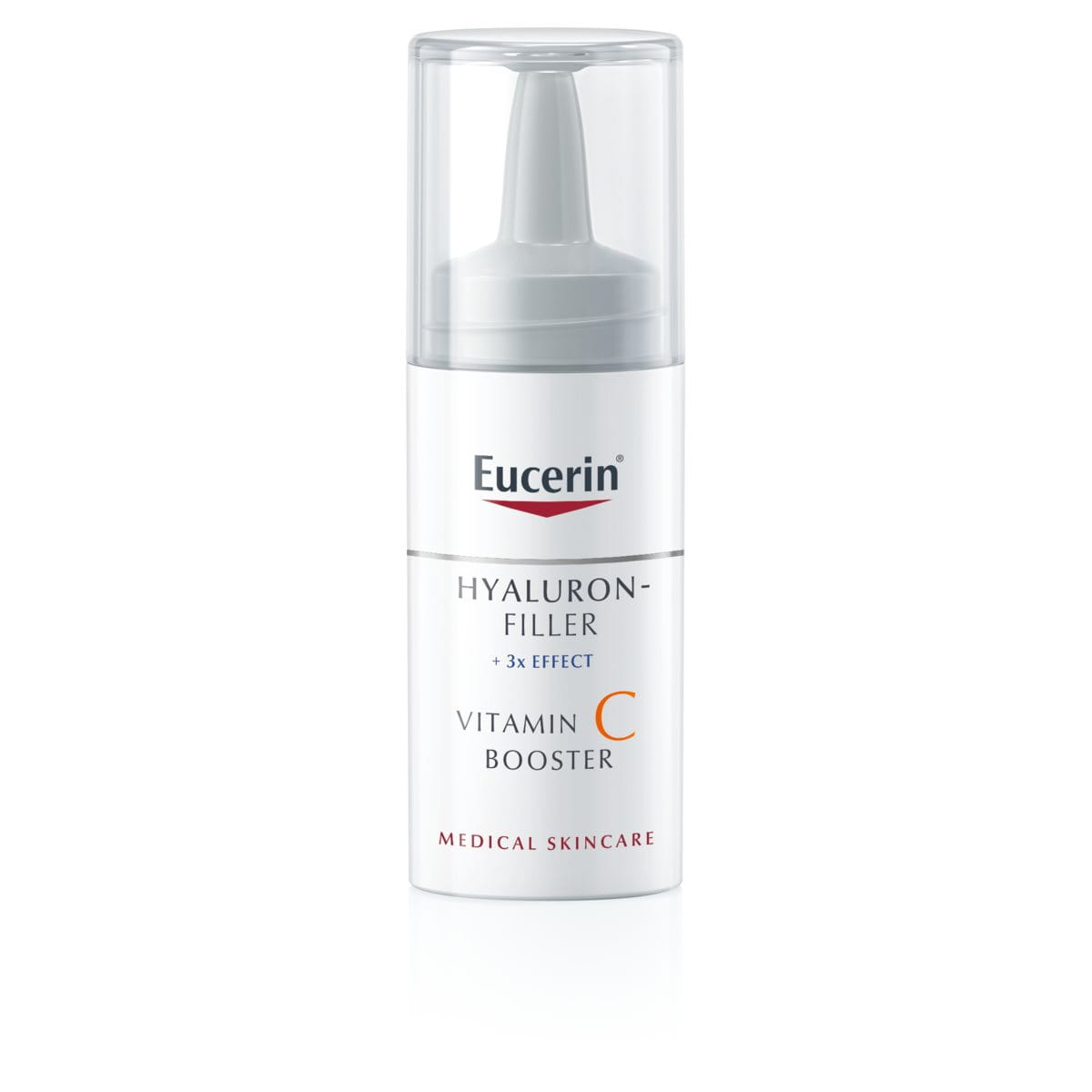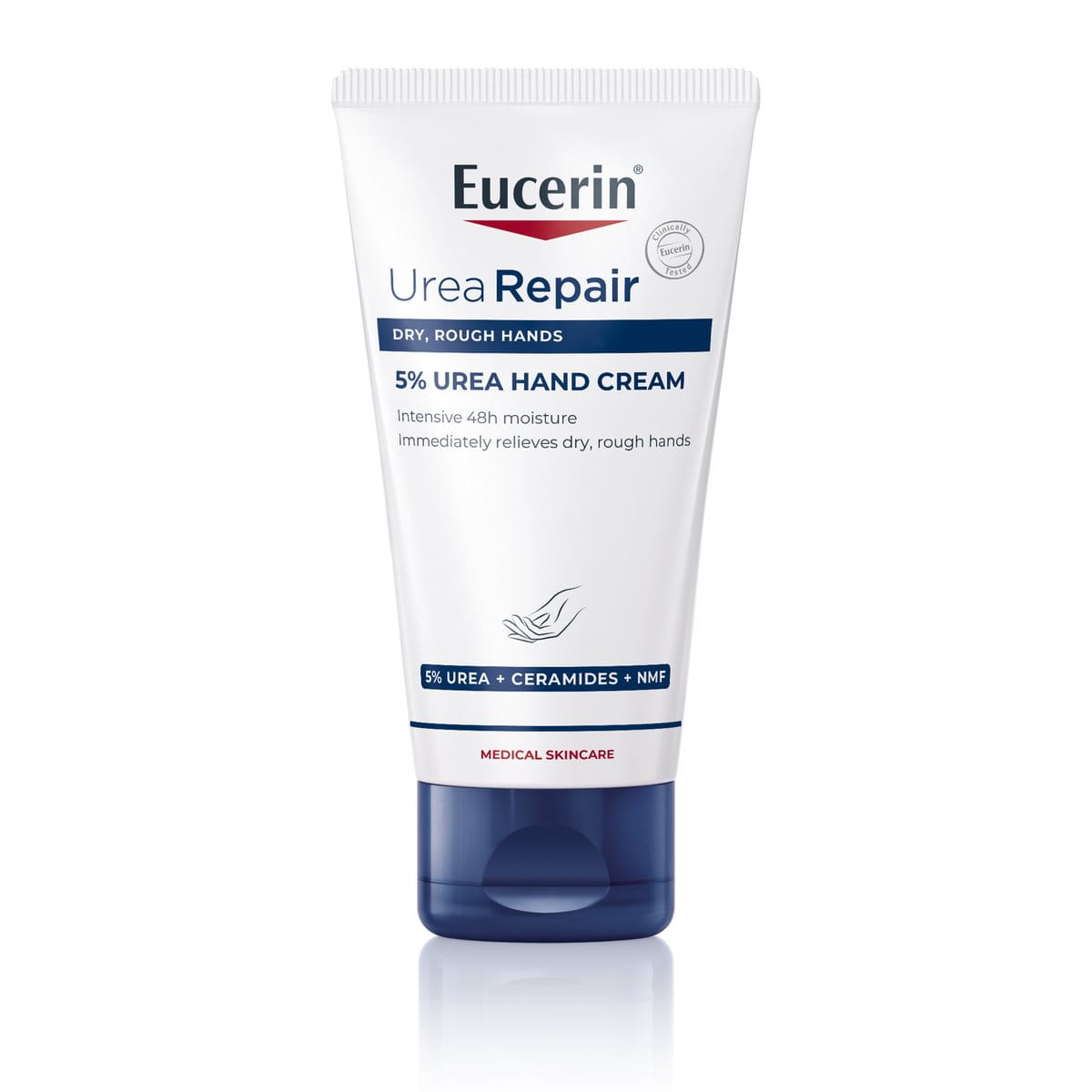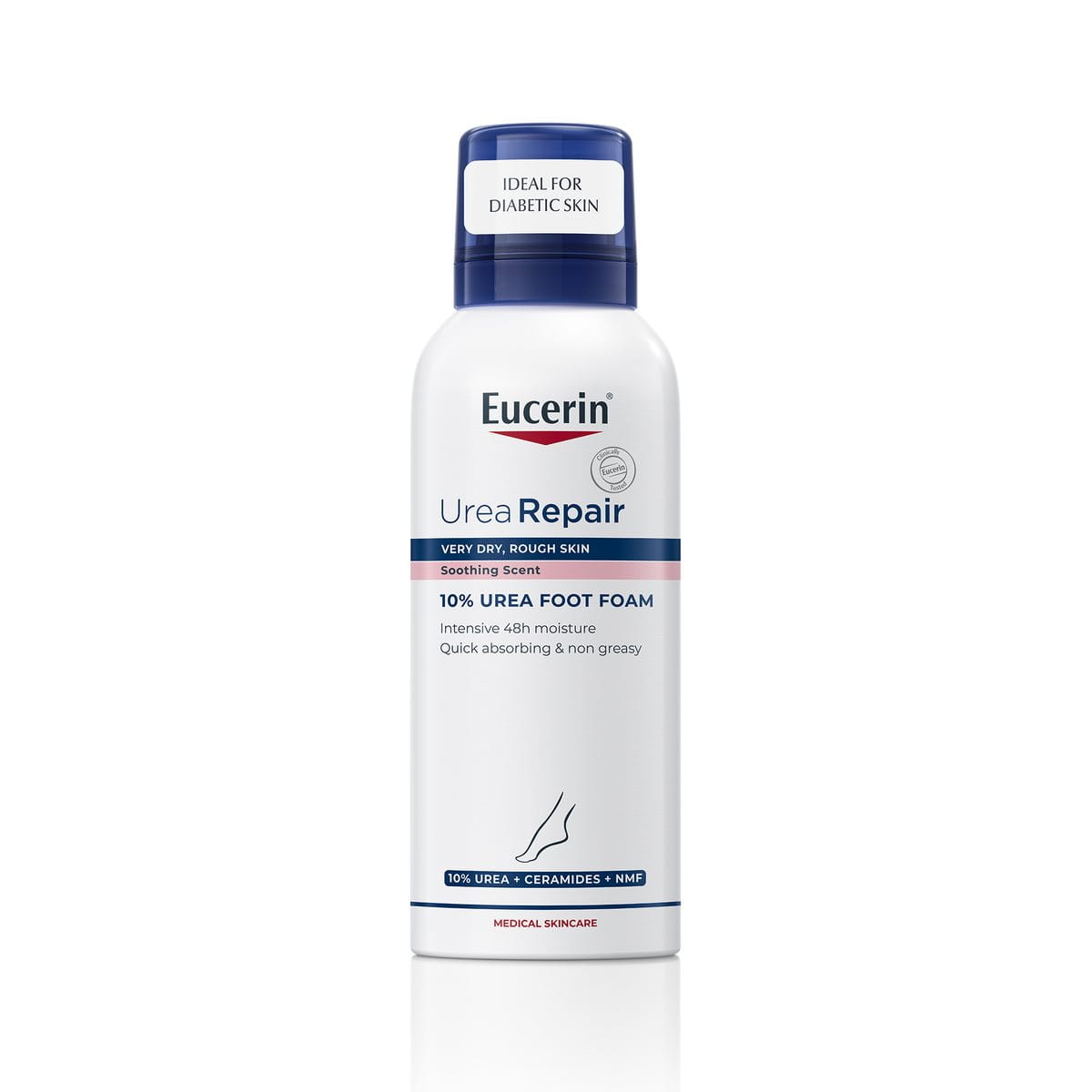Our skin is one of our most important organs. It gives us our appearance, sense of touch, temperature control and protection against infections. However, when skin dries out and becomes rough, tight, scaly, itchy or painful it loses its ability to function properly. Touch becomes less sensitive, the risks of sun damage and premature ageing are increased and infections become more likely. A skincare routine, using products specially formulated for dry skin, can help relieve symptoms and improve skin condition overall.
Signs & Symptoms
Dry skin on the body – a very common complaint
Skin dryness is a leading cause of skin complaints, with over 40% of visits to dermatologists relating to dry skin. It can occur anywhere on the body, but is most common on areas – such as the hands, feet and shins – that are frequently exposed to external factors which can aggravate the condition, e.g. cold weather. Dry skin is also common on the face.
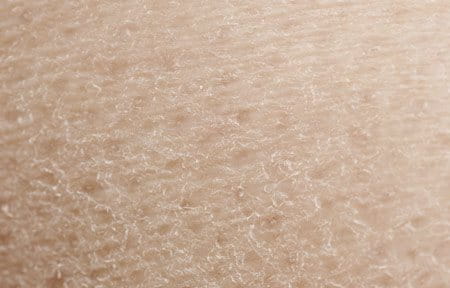
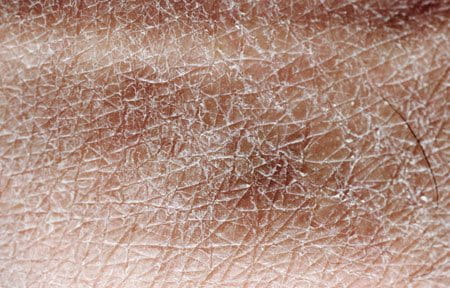
When body skin becomes extremely dry it is prone to symptoms such as tightness, roughness, scaliness, flakiness and itchiness. These may lead to cracked skin.
It may not always be obvious that dryness is the cause of these skin symptoms.
Dry skin
Dry skin can feel tight and rough.
Very dry skin
As the skin loses further moisture it becomes rougher and may appear scaly. Itchiness is also likely.
Extremely dry skin
When skin’s condition deteriorates further – which could be as a result of ineffective skincare – it becomes extremely rough, scaly and flaky. At this stage itching can also become intense.
Affected areas of dry body skin
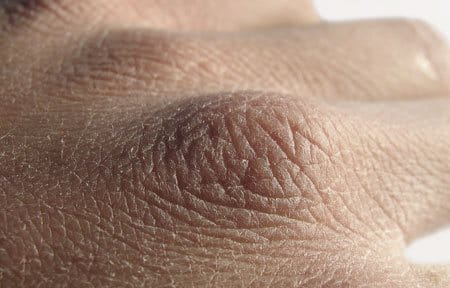
Dryness can appear anywhere, often found on hands, feet, elbows, knees and shins. Dry skin on the feet is particularly common and often results in cracked heels. Severe cracking can cause pain and inflammation.
Sensitive skin
When the skin on our bodies is dry it is often sensitive, but skin sensitivity is not always caused by dryness. Some people’s skin is naturally sensitive, even when well hydrated. People with skin that is dry or sensitive – or perhaps both – should avoid skincare products that contain irritating ingredients such as perfumes and colourants. You should also check that a product has been tested on, and proven to be compatible with, sensitive skin.
Dry skin and diseases
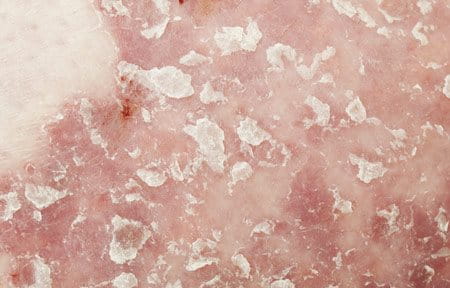
- Xerosis is pathological dry skin which could be caused by different underlying conditions. Xerosis comes from the Greek ‘Xero’ (meaning ‘dry’) and ‘osis’ (meaning ‘disease’).
- Keratosis Pilaris (sometimes referred to as ‘chicken skin’) is a common condition linked to dry skin. It is caused when too much keratin builds up in the skin’s hair follicles. Areas of affected skin – most commonly found on the back of the upper arms – are covered with lots of small white or slightly red spots, and skin feels rough and uneven.
- Atopic Dermatitis and Psoriasis are also linked to dryness. Typically, skin with these conditions looks reddened, flaky, and is very itchy.
- Metabolic conditions such as Diabetes mellitus and kidney diseases can also increase the risk of dry skin.
Important Information
If you need further information to help you identify the cause of your skin complaint, and which treatment route to take, the skin test may be a useful diagnostic tool.
If you are worried or unsure about your symptoms, or they are becoming worse, we recommend you see your doctor or dermatologist for a face-to-face consultation.
Causes & Triggers
Understanding the causes of dry body skin
There are many causes and contributing factors to dry body skin, from environmental influences and inappropriate skin care to medical conditions such as Atopic Dermatitis, Keratosis Pilaris and Psoriasis. The skin acts as the body’s barrier, but this means it is exposed to both external and internal influences.
External factors
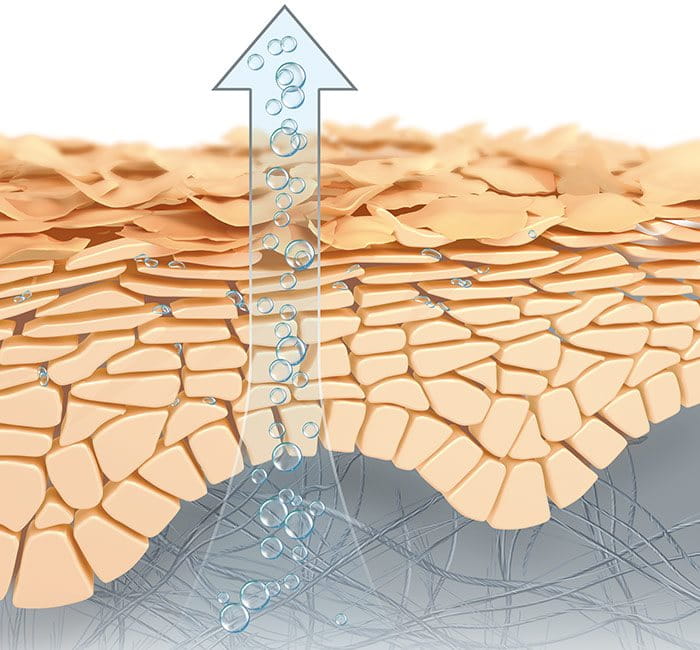
- External factors cause the skin’s natural barrier function to become compromised, resulting in increased moisture loss through the skin.
- A breakdown in the skin’s surface barrier due to vital lipids being washed away prevents the skin from binding in moisture, and the rate of moisture loss increases.
External triggers
The main external causes of the process described above are environmental triggers and inappropriate skincare:



Environmental triggers:
- Harsh weather conditions: hot, cold and dry air disrupt the skin´s barrier function.
- Seasonal changes: symptoms of dry skin often worsen during either winter or summer.
- Ultraviolet (UV) sunlight can increase the rate of skin ageing, and skin becomes more prone to dryness as it ages. Read more about age-induced dryness and premature skin ageing.
Inappropriate skincare:
- Frequent washing, or long, hot baths or showers, removes the lipids that make up the skin barrier.
- An inappropriate skincare routine. It is important to follow a routine, and use products, that are suitable for dry skin. It is especially important not to use strong soaps that strip away natural skin lipids.
Medication
Dry skin is a side effect of many medications. Commonly used treatments that have this side effect are diuretic blood pressure medications, which work by increasing the rate of water excretion from the body, and some antibiotics and oral acne medicines. Always check with a doctor or pharmacist if you are concerned your medication may contribute to dry skin.
Internal factors
Genetic influences
The skin’s moisture balance is also influenced by genetics. Some people have oily skin and some have dry skin. These skin types are inherited, although an individual will not necessarily have the same skin type as their parents. Skin conditions such as Atopic Dermatitis, Diabetes, Ichthyosis, Keratosis Pilaris and Psoriasis are often genetic.


Hormonal influences
Changes in the level of certain hormones, particularly oestrogen and testosterone, can influence the skin’s moisture and lipid levels. For women, this is especially noticeable after the menopause when skin becomes dry due to a decrease in oestrogen production.
Dry skin may also occur during pregnancy because of hormonal changes.
Diet
Like any other organ, the skin requires a range of important nutrients in order to function properly. These include unsaturated fatty acids and vitamins. A lack of any of these can contribute to dry skin.
Age
As skin becomes older, its internal processes slow down and the production of lipids decreases. The water content of skin, as well as its ability to hold moisture, also reduces. These factors lead to dryness which in turn contributes to skin ageing and the development of fine lines and wrinkles. Read more about age-induced dryness.
Contributing Factors
Factors that can contribute to dry body skin
Several other factors also affect the severity of skin dryness. Being aware of these additional factors will help you to avoid them and reduce their impact.


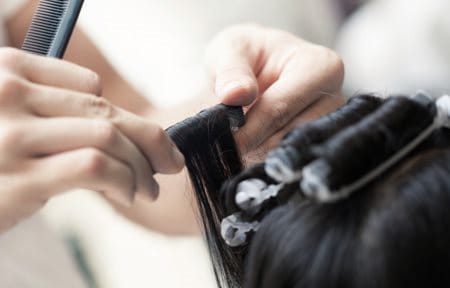
Lack of effective treatment
When dry skin is not treated effectively, the severity of the dryness can increase leading to complications in the overall condition of the skin.
Sun exposure
When protecting dry skin from the sun, it is important to use the appropriate Sun Protection Factor (SPF). Choose a product that moisturises skin, and ensure that it is free from irritating perfumes and colourants as dry skin is more prone to irritation than normal skin.
Occupational hazards
Some occupations require working in conditions that may increase the risk of dry skin. Typically these are occupations that require exposure to the causes of dry skin, such as working in hot or cold conditions (farmer/fisherman), or frequent use of detergents (doctor/nurse/hairdresser), or exposure to chemicals (mechanic/cleaner).
Dehydration
Skin receives its moisture via the body, and is therefore dependent on the body’s water balance. When dehydrated, the body reduces the supply of moisture to the skin which can contribute to dryness. Elderly people are prone to dehydration as the sensation of thirst diminishes with age.
Smoking
Cigarettes contain many toxins, including nicotine, which may reduce blood flow and slow down skin’s metabolism, possibly causing dryness.Cigarettes contain many toxins, including nicotine, which may reduce the blood flow. This results in a decreased metabolic rate within the skin. This means the skin may age prematurely and dry out.
Solutions
Caring for dry body skin
Dry skin is caused by a breakdown in the skin’s barrier function. This leads to a deficiency of Natural Moisturising Factors (NMFs) which causes a reduction in skin’s ability to bind in water. Dry skin needs a skincare routine that prevents further deterioration of the skin barrier and replaces missing NMFs.
Very dry and extremely dry skin – including dry skin caused by Atopic Dermatitis, Diabetes or Psoriasis − requires products that have been formulated for the particular level of dryness. When choosing a skin care product for babies and children, always check the age recommendation or ask you pharmacist and/or doctor for advice.
Recommendations for the care of dry body skin


Cleansing dry body skin
The most likely cause of dry skin is damage to the skin’s natural barrier. Alkaline cleansers can damage this protective layer, so it’s important to choose mild cleansers to support skin. Additional NMFs, such as Urea, will also help to restore the skin’s moisture balance.
Eucerin UreaRepair PLUS Washfluid 5% Urea is a very gentle yet effective cleanser formulated specifically for dry to very dry body skin. It gently cleanse without drying out the skin, and contains added moisturising factors. It is suitable for those with Atopic Dermatitis and for Psoriasis-related dry skin. It is also suitable for cleansing intimate areas.
Moisturising dry body skin
The first requirement for moisturisers for dry skin is to restore the moisture balance in the upper layers of the skin. Urea, Lactate and other NMFs bind moisture in to the stratum corneum (the upper layers of the skin). For very dry and rough skin, a 5% concentration of Urea is usually sufficient. Extremely dry, rough, scaly, flaky and itchy skin requires a higher concentration of 10% Urea.The Eucerin UreaRepair ORIGINAL and Eucerin UreaRepair PLUS ranges for dry skin contain body creams and lotions, hand and foot creams and ointments with both 5% and 10% Urea.
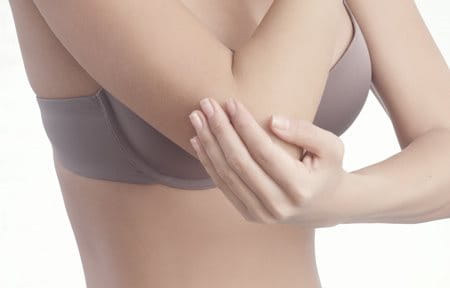
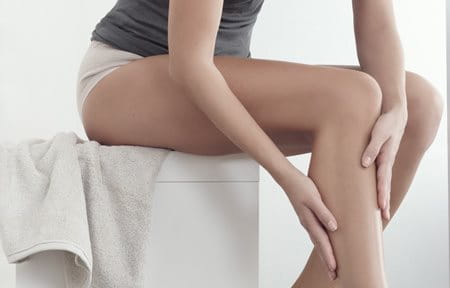
Dry, rough and tight skin can be caused by an impaired skin barrier – the result of deficiency of skin lipids and moisture binding substances. Eucerin UreaRepair ORIGINAL and Eucerin UreaRepair PLUS products fight these deficiencies with dermatologically-proven active ingredients:
- Urea and other water-binding NMFs are replenished resulting in improved hydration in the stratum corneum.
- Ceramide repairs the lipid skin barrier to prevent transepidermal water loss.
Eucerin UreaRepair PLUS Body Lotion 5% Urea and Eucerin UreaRepair PLUS Body Cream 5% Urea are ideal for the daily care of dry, rough and tight skin, while Eucerin UreaRepair PLUS Body Lotion 10% Urea is ideal for daily care of extremely dry, scaly , flaky and itchy skin. The range also includes dedicated products to treat dry skin on hands and feet: Eucerin UreaRepair PLUS Hand Cream 5% Urea, Eucerin UreaRepair PLUS Foot Cream 10% Urea and Eucerin UreaRepair PLUS 10% Urea Foot Foam.
Protecting dry body skin against sun-exposure
It is advisable to reduce sun-exposure by wearing protective clothing and a sunscreen when going outdoors. It is also important that the sunscreen blocks UV rays and contains moisturising factors. A sunscreen for dry skin should not contain perfumes or colourants, as dry skin is prone to irritation. Eucerin Sunscreens for dry skin include effective UV filters and antioxidant Licochalcone A to protect against UV-induced oxidation and premature ageing.Avoiding contributing factors
In addition to a good cleansing and moisturising routine, the following measures will help reduce the impact of dry skin and the need for treatment:
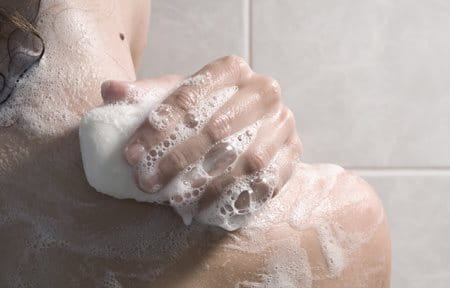

- Avoid dry air by spending less time outdoors in hot and cold weather and by using a humidifier indoors when the heating is on.
- Reduce the time spent in hot water by having quick showers instead of long baths.
- Using gloves when washing dishes will help to avoid hot water and strong detergents.
- Wear clothes made of natural materials such as cotton and silk that do not irritate the skin. Wool is natural but can irritate, and should be avoided.
- Use a laundry detergent that is free from dyes or perfumes as these can remain on the clothes after washing and irritate dry skin.
- Use care products without perfumes, colourants and parabens to avoid irritation.
- Ensure that you drink adequate amounts of water. This is especially recommended for elderly people.
Our brand values

We deliver a holistic dermo-cosmetic approach to protect your skin, keep it healthy and radiant.

For over 100 years, we have dedicated ourselves to researching and innovating in the field of skin science. We believe in creating active ingredients and soothing formulas with high tolerability that work to help you live your life better each day.

We work together with leading dermatologist and pharmacist partners around the world to create innovative and effective skincare products they can trust and recommend.


